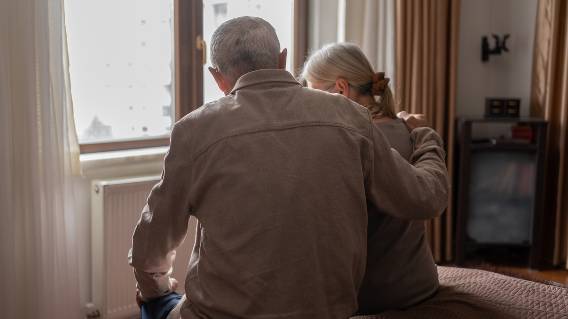Mesothelioma and Self-Esteem: Coping Tips for Cancer Patients
Health & WellnessWritten by Dana Nolan, MS, LMHC | Edited By Amy Edel

February is International Boost Self-Esteem month, which is dedicated to raising awareness about the importance of healthy self-esteem. This is especially vital for those dealing with mesothelioma and other forms of cancer.
Self-esteem by definition is one’s appraisal of their worth or value as a person. It is similar in many ways to self-confidence, which is trust in your abilities, qualities and judgment.
As a mental health counselor, I have found that low self-esteem is common when people are experiencing anxiety, depression and a multitude of other mental health challenges. Additionally, when someone is struggling with medical issues such as a mesothelioma, they may not feel like the same fun, productive or dependable person they used to be.
Challenges to Healthy Self-Esteem
Many people link their sense of self-worth to accomplishments or productivity. If a medical issue or mental illness affects one’s ability to work or function the way they would like, it can lead to lower self-esteem.
Coping with mesothelioma presents many challenges that can impact one’s perception of self-worth. Body image issues can affect both men and women who are dealing with a diagnosis of mesothelioma. Patients may look different due to weight loss or weight gain, hair loss or scarring.
Fatigue and shortness of breath are common symptoms of mesothelioma. The inability to do routine things, such as working, household chores or playing with kids or grandkids, is understandably disappointing. But letting this make you feel less worthy as a spouse, parent or friend can create low self-esteem.
Low self-esteem is not just an unpleasant feeling. In some cases, it can lead to behavior changes that impact your physical health. If you don’t feel worthy of help from loved ones, you may reject offers of help or not ask for help when you need it.
Ways to Boost Self-Esteem
Luckily there are ways to maintain your self-esteem at a healthy level. Start by reflecting on how you measure your self-worth and determine if you need to make some adjustments. Would you want your child or spouse to feel worthless if they looked different because of their mesothelioma treatment or couldn’t work like they used to? Of course not. Saying to yourself, “Even though I have mesothelioma, I can still be a good friend or partner,” or “Mesothelioma does not define me,” helps you focus on what you can still do.
One way to boost your self-esteem is to remind yourself of your personal strengths and other qualities, such as a sense of humor, generosity, courage, persistence and so on. When your self-esteem is waning, you may tend to focus more on your negative qualities and mistakes to the exclusion of strengths. Refocusing on positive qualities can raise self-esteem.
If you are the caregiver of someone with mesothelioma and fear your loved one’s self-worth is suffering due to their diagnosis or treatment, you can help by reminding them of all the reasons you love them. Reassure them that you love them regardless of how mesothelioma is affecting them and your life together.
Most of us struggle at some point in our lives with low self-esteem, but reminding ourselves of our positive qualities can help bring things back to a healthier level.






